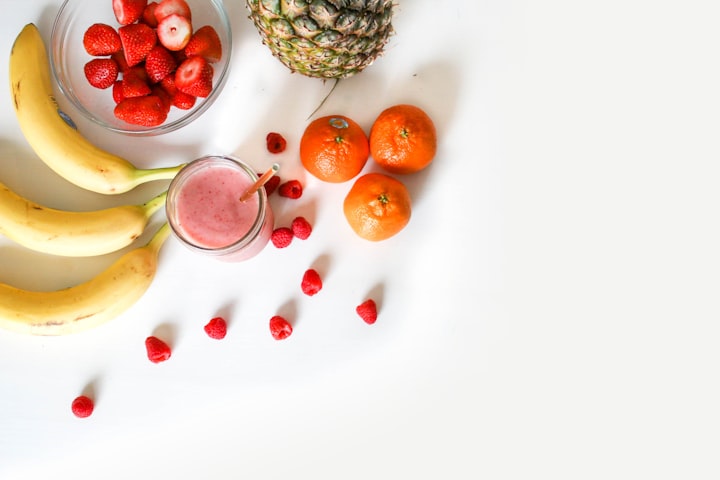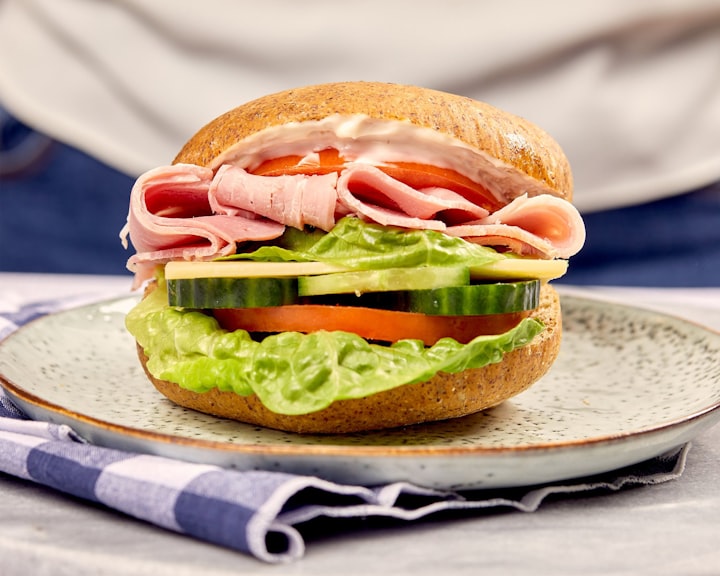
A keto diet is a low-carb, high-fat diet that is designed to put your body into a state of ketosis, where it burns fat for fuel instead of carbohydrates. A typical keto meal plan might include:
Breakfast:
scrambled eggs with bacon and avocado
a spinach and feta omelette
a keto smoothie made with almond milk, berries, and coconut oil
Lunch:
a salad with mixed greens, grilled chicken, avocado, and a vinaigrette dressing
a bacon, lettuce, and tomato (BLT) wrap made with lettuce leaves instead of bread
a bowl of chicken and vegetable soup
Dinner:
a grilled steak with a side of roasted vegetables
a salmon fillet with a side of cauliflower rice
a sausage and pepperoni pizza made with a cauliflower crust
Snacks:
a handful of almonds or macadamia nuts
cheese and olives
a keto fat bomb (chocolate or peanut butter flavor)
It's important to note that everyone's dietary needs and preferences are different, so it's essential to consult a medical professional before starting a keto diet.
dummm big
Ketogenic diet basics
The ketogenic diet, commonly known as the keto diet, is a low-carb, high-fat diet that is designed to put your body into a state of ketosis, where it burns fat for fuel instead of carbohydrates.
The idea behind the diet is that when your body is in a state of ketosis, it becomes very efficient at burning fat for energy, which can lead to weight loss and other health benefits.
The macronutrient ratio for a keto diet typically consists of:
70-75% of calories from fats
20-25% of calories from protein
5-10% of calories from carbohydrates
To achieve this macronutrient ratio, the diet typically includes foods such as meat, fish, eggs, dairy products, low-carb vegetables, and healthy fats such as olive oil and avocado. Foods that are high in carbs, such as grains, fruits, and sugar, are limited or avoided.
It's important to note that a keto diet should be followed under the guidance of a medical professional, as it may not be appropriate for everyone and could lead to side effects such as the "keto flu" and nutrient deficiencies if not done properly.
Keto-friendly foods
There are many foods that are considered to be keto-friendly, as they are low in carbohydrates and high in healthy fats. Here is a list of some commonly consumed foods on a ketogenic diet:
Meat and poultry: beef, pork, lamb, chicken, turkey, etc.
Fish and seafood: salmon, tuna, trout, shrimp, crab, etc.
Eggs: whole eggs with the yolk are best as the yolk is high in healthy fats
Dairy products: cheese, butter, heavy cream, sour cream, cream cheese, etc.
Low-carb vegetables: spinach, kale, broccoli, cauliflower, zucchini, etc.
Healthy fats: olive oil, avocado oil, coconut oil, butter, nuts, and seeds.
Berries: Strawberries, raspberries, blackberries, blueberries etc.
Beverages: Water, coffee, tea, bone broth, etc.
It's important to note that while these foods are considered to be keto-friendly, portion control and overall calorie intake should still be taken into consideration when following a ketogenic diet. Also, it is always recommended to consult a medical professional before starting a keto diet, as it may not be appropriate for everyone.
Meat and poultry: beef, pork, lamb, chicken, turkey, etc.
Yes, meat and poultry are typically considered to be keto-friendly foods as they are high in protein and healthy fats, and low in carbohydrates.
Beef, pork, and lamb are particularly good options for a ketogenic diet, as they are high in fat and provide a good source of essential nutrients such as iron, zinc, and B vitamins. These meats can be consumed in a variety of ways, including grilled, roasted, or pan-fried.
Chicken and turkey are also good choices for a ketogenic diet, as they are high in protein and have a lower fat content than other meats. It's best to consume the dark meat of chicken and turkey as it has more fat content and it's also important to remove the skin as it is high in fat.
It is also important to choose grass-fed, organic, and free-range options whenever possible, as these meats are likely to be of a higher quality and contain fewer toxins and contaminants.
However, it is important to note that processed meats, such as bacon, sausages, and deli meats, should be consumed in moderation or avoided as they can be high in sodium and artificial ingredients.
Fish and seafood: salmon, tuna, trout, shrimp, crab, etc.
Yes, fish and seafood are generally considered to be keto-friendly foods as they are low in carbohydrates and high in protein and healthy fats.
Salmon, tuna, and trout are particularly good options for a ketogenic diet, as they are high in omega-3 fatty acids, which are beneficial for heart health and brain function. These fish can be consumed in a variety of ways, including grilled, baked, or pan-fried.
Shrimp and crab are also good choices for a ketogenic diet, as they are low in carbohydrates and high in protein. They can be consumed as a main dish or as a protein source for salads or soups.
It's important to note that when consuming seafood, it's best to choose wild-caught options over farm-raised, as wild-caught fish are likely to contain fewer toxins and contaminants.
It's also important to note that some seafood such as oysters, clams, mussels, and scallops are low in fat and calories, but high in carbohydrates, so should be consumed in moderation or avoided if you are strictly following a ketogenic diet.
Eggs: whole eggs with the yolk are best as the yolk is high in healthy fats
Yes, eggs are considered to be a keto-friendly food, as they are low in carbohydrates and high in protein and healthy fats. The yolk of the egg is particularly high in healthy fats, and it's also a good source of vitamins and minerals such as choline, vitamin D, and vitamin A.
Eggs can be consumed in a variety of ways, including scrambled, poached, boiled, or fried. Whole eggs with the yolk are considered the best option for a ketogenic diet, as the yolk is high in healthy fats and the white is high in protein. However, if you are watching your cholesterol intake, it's recommended to consume the egg whites and limit the yolks.
In addition to the nutritional benefits, eggs are also very versatile and can be used in a variety of recipes, such as keto-friendly breakfast dishes, salads, and soups.
It's also important to note that while eggs are considered to be a keto-friendly food, they should be consumed in moderation as part of a balanced diet and it's always recommended to consult a medical professional before making any changes to your diet.
Dairy products: cheese, butter, heavy cream, sour cream, cream cheese, etc.
Yes, dairy products are generally considered to be keto-friendly foods as they are high in healthy fats and protein, and low in carbohydrates.
Cheese is a particularly good option for a ketogenic diet, as it is high in healthy fats and protein, and has a low carbohydrate content. Many types of cheese, such as cheddar, mozzarella, and blue cheese, are keto-friendly.
Butter and heavy cream are also considered keto-friendly as they are high in healthy fats and have a low carbohydrate content. They can be used in cooking and baking, or added to keto-friendly recipes such as coffee or tea.
Sour cream and cream cheese are also keto-friendly options as they are high in healthy fats and have a low carbohydrate content. They can be used as a topping for keto-friendly recipes such as salads, vegetables, and meat dishes.
It's important to note that while these dairy products are considered to be keto-friendly, they should be consumed in moderation as part of a balanced diet and it's always recommended to consult a medical professional before making any changes to your diet. It's also important to choose full-fat options over low-fat versions, as the latter often have added sugar and thickeners.
Low-carb vegetables: spinach, kale, broccoli, cauliflower, zucchini, etc.
Yes, low-carb vegetables are generally considered to be keto-friendly foods as they are low in carbohydrates and high in fiber and essential vitamins and minerals.
Spinach, kale, and broccoli are particularly good options for a ketogenic diet, as they are low in carbohydrates and high in fiber, vitamins, and minerals such as vitamin K, vitamin C, vitamin A, and iron. These vegetables can be consumed in a variety of ways, including raw, sautéed, or steamed.
Cauliflower is also a great option for a ketogenic diet, as it is low in carbohydrates and high in fiber and vitamins. It can be used as a substitute for high-carb foods such as rice and potatoes.
Zucchini is another low-carb vegetable that is keto-friendly, it is high in vitamins and minerals like potassium, vitamin A, and vitamin C. It can be eaten raw or cooked in a variety of ways such as grilled, sautéed, or fried.
Other examples of low-carb vegetables include:
Asparagus
Bell peppers
Eggplant
Mushroom
Onion
Radishes
Tomatoes
Leafy greens such as lettuce, arugula, and collard greens
It's important to note that while these vegetables are considered to be keto-friendly, they should be consumed in moderation as part of a balanced diet and it's always recommended to consult a medical professional before making any changes to your diet.
Healthy fats: olive oil, avocado oil, coconut oil, butter, nuts, and seeds.
Yes, healthy fats are an important component of a ketogenic diet, as they provide energy for the body and help to promote satiety.
Olive oil, avocado oil, and coconut oil are particularly good options for a ketogenic diet, as they are high in healthy monounsaturated and polyunsaturated fats. These oils can be used for cooking and baking, or added to salads and other dishes as a dressing.
Butter is also considered a healthy fat for a ketogenic diet, it's high in saturated fats and a good source of energy. It can be used for cooking and baking, or added to keto-friendly recipes such as coffee or tea.
Nuts and seeds are also considered to be keto-friendly, as they are high in healthy fats and protein, and low in carbohydrates. Some examples of keto-friendly nuts and seeds include almonds, macadamia nuts, pecans, walnuts, pumpkin seeds, and sesame seeds.
It's important to note that while these foods are considered to be keto-friendly, they should be consumed in moderation as part of a balanced diet and it's always recommended to consult a medical professional before making any changes to your diet. Additionally, it's best to choose unprocessed, raw, and unsalted options whenever possible.
Berries: Strawberries, raspberries, blackberries, blueberries etc.
Berries are generally considered to be keto-friendly, as they are relatively low in carbohydrates compared to other fruits. However, they should be consumed in moderation as they still contain some amount of carbohydrates.
Strawberries, raspberries, blackberries, and blueberries are all relatively low in carbohydrates and high in fiber, vitamins, and antioxidants. They can be eaten fresh or used in keto-friendly recipes such as smoothies, jams, and desserts.
Berries are also keto-friendly because they have a low glycemic index (GI) which means they do not spike blood sugar levels as much as other fruits. Berries are also high in antioxidants and can support overall health.
It's important to note that while berries are considered to be keto-friendly, they should be consumed in moderation as part of a balanced diet and it's always recommended to consult a medical professional before making any changes to your diet. Additionally, it's best to choose organic options whenever possible, as conventionally grown berries can be high in pesticides.
Beverages: Water, coffee, tea, bone broth, etc.
Yes, water, coffee, tea, and bone broth are all keto-friendly beverages as they are low in carbohydrates and calories and do not spike blood sugar levels.
Water is the best beverage choice for a ketogenic diet as it is calorie-free and essential for hydration. It's important to consume enough water to prevent dehydration and to help your body function properly.
Coffee and tea are also keto-friendly, as long as they are consumed black or with a small amount of cream or butter. Avoid adding sweeteners or milk as they can add unwanted carbohydrates and calories.
Bone broth is also a keto-friendly beverage, it is a good source of collagen and minerals. It is also low in carbohydrates and calories.
It's important to note that while these beverages are considered to be keto-friendly, it's always recommended to consult a medical professional before making any changes to your diet and to make sure that these beverages fit into your overall calorie intake. Additionally, it's important to be mindful of any added ingredients, such as sweeteners or creamers, as they can add unwanted calories and carbohydrates.
About the Creator
aishwarya
Hello My Friends
Welcome To My Website !
We’re here to help you reach your health and wellness goals through personalized meal plans, tips and tricks for healthy eating, and more! Join the #AishwaryaKetoMelPlan movement and get fit today!






Comments
There are no comments for this story
Be the first to respond and start the conversation.